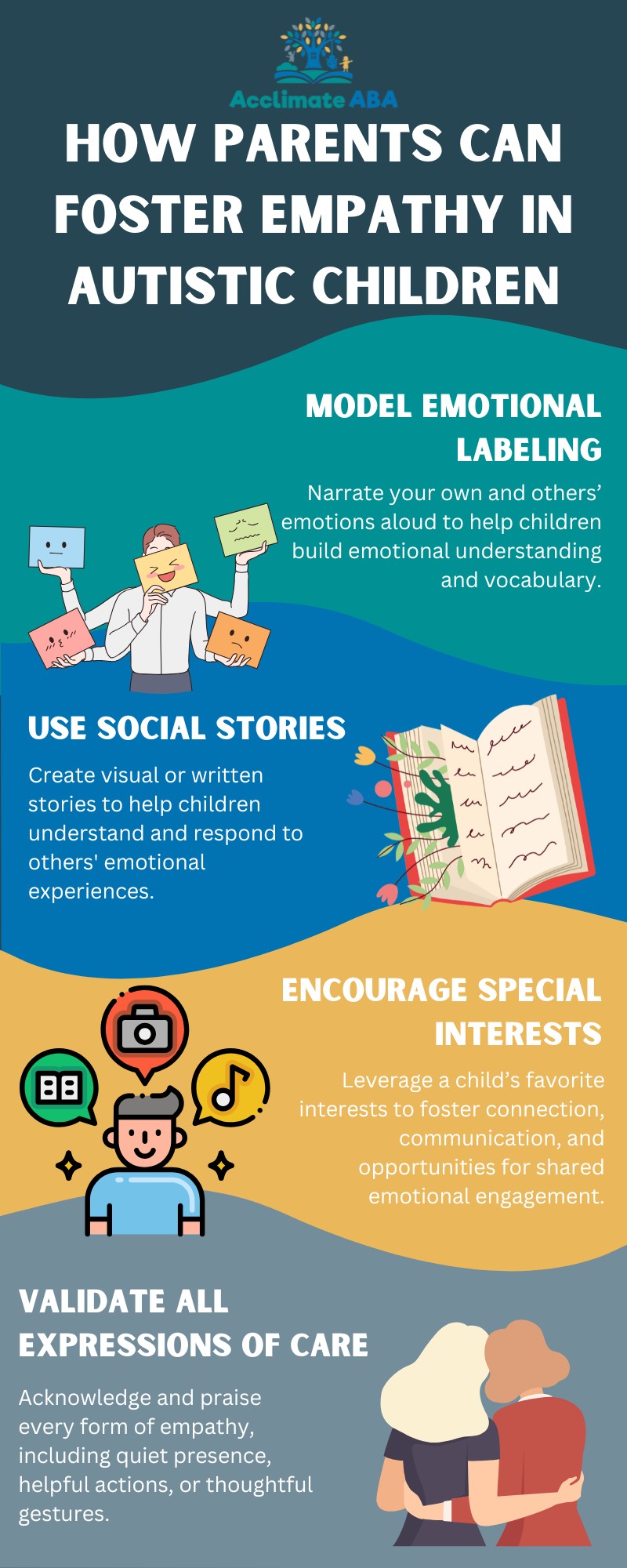Key Points:
- People with Asperger’s can experience empathy, though it may be expressed differently.
- Emotional and cognitive empathy are often misunderstood in autism spectrum conditions.
- Support strategies can help autistic individuals build stronger social-emotional skills.
Empathy is often misunderstood in the context of autism, particularly for individuals with Asperger’s syndrome. While stereotypes persist, research continues to challenge the myth that autistic individuals lack empathy. According to one study, up to 50% of autistic individuals struggle with emotional self-awareness.
For people with Asperger’s, empathy is not absent—it’s often just expressed differently. They may deeply feel another person’s pain or joy, but have difficulty knowing how to respond in a socially typical way. This can lead to misinterpretations by others, who might expect immediate verbal or facial cues.
Understanding the difference between emotional and cognitive empathy—and how they show up uniquely in autism—is key to building compassion and stronger social support for neurodiverse individuals. In this article, we’ll go over the facts about empathy in Asperger’s, address common misconceptions, and offer practical strategies for supporting emotional growth.
Can Someone with Asperger’s Have Empathy?
Yes, someone with Asperger’s can have empathy. However, it may not always be expressed in conventional ways. People on the autism spectrum, including those formerly diagnosed with Asperger’s, often experience emotional empathy but may struggle with reading social cues or responding in expected ways. This doesn’t mean they don’t care—it often means they communicate or connect differently.
Understanding how empathy manifests in autism requires separating different types of empathy and adjusting expectations based on how the individual processes emotions and social signals.
What Is Empathy, and Why Is It Often Misunderstood in Autism?
Empathy refers to the ability to understand and share another person’s feelings. It has two main components: cognitive empathy (understanding others’ thoughts or emotions) and emotional empathy (feeling others’ emotions). People often assume that both must be expressed in traditional ways to be valid.
In autism spectrum conditions, including Asperger’s syndrome, many individuals have strong emotional empathy but difficulty with cognitive empathy. That is, they may genuinely care but struggle to interpret facial expressions, tone of voice, or implied meanings.
How Does Empathy Present in People with Asperger’s?
Empathy in people with Asperger’s is often present but may not look typical. Many individuals feel others’ emotions deeply (emotional empathy) but have difficulty interpreting social cues or knowing how to respond (cognitive empathy). This difference can make their empathy harder to recognize.
Instead of verbal comfort or facial expressions, empathy may show through quiet presence, thoughtful actions, or shared routines. They might need more time to process emotions, but their care is genuine.
Understanding these differences helps dispel the myth that people with Asperger’s lack empathy—it simply manifests in ways that reflect their unique communication and processing styles.
Why Do People Confuse Autism with a Lack of Empathy?
People often confuse autism with a lack of empathy because autistic individuals may not express emotions in typical, expected ways. Social norms prioritize eye contact, facial expressions, and verbal reassurances—cues that autistic people may struggle with due to differences in cognitive empathy or sensory processing.
This mismatch can lead others to misinterpret quietness or delayed responses as emotional indifference. In reality, many autistic individuals feel empathy deeply but show it through nonverbal actions, shared interests, or protective behavior. Misunderstanding these expressions contributes to the harmful stereotype that autism means lacking compassion.
What Are Common Empathic Traits in People with Asperger’s?
Once we expand our definition of empathy, many traits emerge among people with Asperger’s. These behaviors reflect deep compassion, though they may not align with neurotypical norms. Below are some common examples:
1. Honesty and Loyalty
People with Asperger’s often express empathy through unwavering honesty and long-term loyalty. Their support may come through consistent presence, reliability, and a strong sense of justice, reflecting sincere emotional investment in those they care about.
2. Empathy Through Structure
Offering structure or predictability is a common way autistic individuals show care. By creating helpful routines or planning for others’ needs, they express empathy through practical support that brings comfort and stability to loved ones.
3. Helping Through Interests
Shared interests often serve as a bridge for connection. Whether introducing someone to a favorite topic or engaging in mutual hobbies, this form of empathy centers on inclusion and bonding in a meaningful, familiar way.
4. Silent Emotional Presence
Rather than offering verbal comfort, individuals may express empathy simply by being physically present. Their quiet companionship during distress communicates support, demonstrating deep care without the need for traditional emotional expression.
5. Protectiveness
When someone they care about is hurt or treated unfairly, strong protective instincts can emerge. This reaction often stems from a deep sense of loyalty and empathy, even if the emotional concern is not openly discussed.
These expressions may require interpretation, but they show deep emotional awareness.
How Can Families and Educators Foster Empathy in Autistic Children?
Supporting empathy development in autistic children involves teaching, modeling, and creating environments where neurodiverse expressions of care are valued. Families and educators can guide this growth by focusing on strengths and using visual or structured tools.
Strategies include:

Building empathy is not about becoming neurotypical but enhancing meaningful connection.
Can Therapy Support Emotional Growth in Autism?
Yes, therapy can support emotional growth in individuals with autism by teaching them how to recognize emotions, respond to social cues, and express empathy in their own way. Techniques like Applied Behavior Analysis (ABA), cognitive behavioral therapy, and social-emotional learning can be tailored to fit each child’s needs.
Rather than forcing neurotypical behavior, effective therapy builds on a child’s strengths. It helps them navigate emotions with tools like visual aids, role-play, and guided interaction. Over time, autistic individuals can develop deeper self-awareness and stronger connections with others, fostering emotional growth while honoring their unique communication style.
How to Support a Loved One with Asperger’s Who Seems Emotionally Distant
If you have a family member or partner with Asperger’s who seems emotionally distant, it helps to remember that empathy may be present in subtle forms. Recognizing and respecting their emotional boundaries is essential.
Practical steps include:
1. Don’t Assume Disinterest
A lack of verbal or emotional expression doesn’t mean a lack of care. Look for quiet, practical ways your loved one shows concern, like solving problems, checking in, or being consistently present when needed.
2. Avoid Forcing Emotional Displays
Pressuring someone with Asperger’s to express feelings in typical ways can create stress or shutdown. Instead, foster emotional connection by creating calm, low-pressure environments where they feel safe to express themselves at their own pace.
3. Use Direct Communication
Autistic individuals often prefer clear, literal language. Express your needs and feelings openly, rather than relying on hints or body language, which can be easily missed or misunderstood.
4. Celebrate Their Way of Showing Care
Recognize and appreciate nontraditional expressions of love, like fixing something for you, remembering details, or quietly listening. These actions may speak volumes about their emotional investment and desire to connect in ways that feel natural to them.
Turn Small Steps Into Big Progress With ABA Therapy
At Acclimate ABA, we understand that emotional connection looks different for every child. Through individualized, compassionate ABA therapy in Utah, we help children on the autism spectrum build communication skills, regulate emotions, and engage meaningfully with others.
Get in touch with us to learn how our team can support your child’s growth and help them thrive in their own way. Emotional connection is possible—and we’re here to help nurture it.



